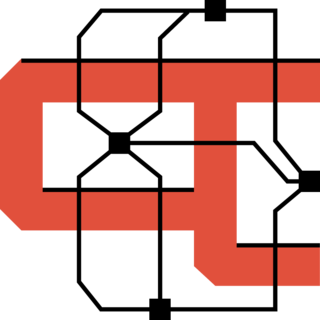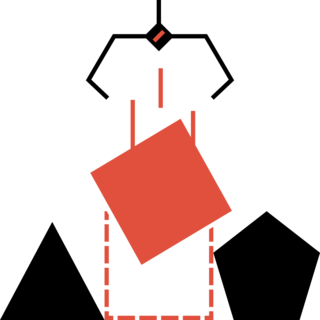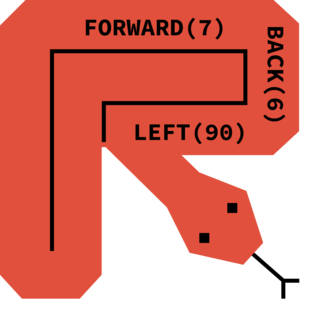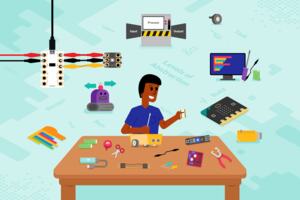Course overview
- Provider
- Futurelearn
- Course type
- Free trial availiable
- Deadline
- Flexible
- Duration
- 3 hours
- Course author
- Isabella Lieghio
Description
Physical computing is the process of designing, building, and programming systems that use physical components such as buttons, lights, and motors.
On this three-week course from the Raspberry Pi Foundation, you’ll be introduced to the world of physical computing and how it can encourage learners to use their imaginations to solve problems and develop new ideas.
You’ll learn how to support young children aged 5-11 years old as they work through physical computing projects, whilst also developing your own knowledge and skills.
Gain an understanding of inputs and outputsOn the course, you’ll build projects involving connecting both inputs and outputs to a Crumble microcontroller or a BBC micro:bit.
You will use inputs to pass data into the microcontroller, process that data with block-based programming languages, and use outputs to move a robot buggy or provide information to a user.
The course will help you complete several physical computing projects to develop your skills and help you understand the experiences your young learners may have. You’ll also reflect on how your projects use the programming principles of sequence, selection, and repetition.
Learn how to adapt your lessons for young learners, with Raspberry PiOn the course, you’ll find advice from the experts at Raspberry Pi Foundation on how to make the concepts relevant to young learners.
The projects that you work on also model the use of “levels of abstraction”, a way of splitting up computing projects to help focus on individual aspects, and lower cognitive load.
At the end of the course, you’ll create your own physical computing project involving a buggy to help cement your knowledge and put what you have learned into practice.




